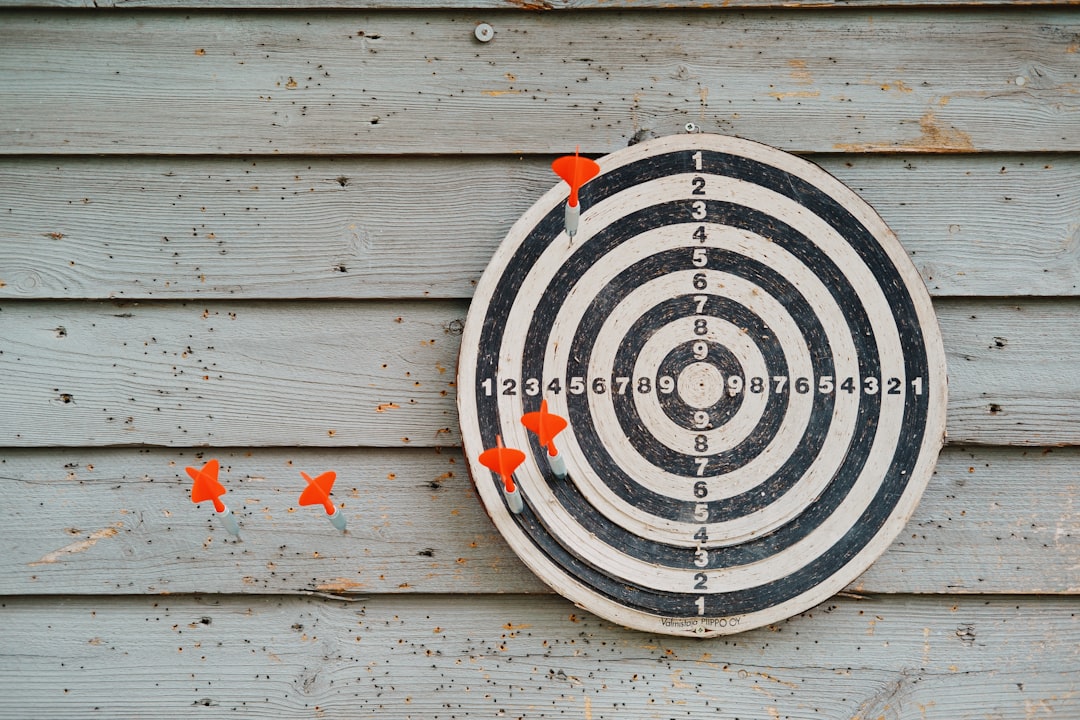Support our educational content for free when you purchase through links on our site. Learn more
Is Unity Still Good? 10 Reasons to Choose It in 2025 🎮

Remember the first time you launched Unity and marveled at how quickly you could bring your game ideas to life? Fast forward to 2025, and the landscape of game engines has never been more crowded—or more competitive. With newcomers like Godot gaining traction and Unreal Engine pushing the boundaries of graphics, you might be wondering: Is Unity still good enough to build your next hit? Spoiler alert: the answer isn’t just a simple yes or no. We’re diving into 10 compelling reasons why Unity remains a powerhouse, the challenges it faces, and how it stacks up against its rivals. Stick around, because some of the insights might just surprise you!
Did you know Unity powers over 50% of all mobile games worldwide? That’s a staggering footprint for a tool that started as a humble indie project. But with recent licensing changes stirring controversy and competitors nipping at its heels, the question isn’t just about Unity’s past glory—it’s about its future. Ready to find out if Unity still deserves your time and talent? Let’s jump in!
Key Takeaways
- Unity remains a top choice for beginners and pros thanks to its intuitive interface and massive cross-platform support.
- Its vast community and Asset Store provide unmatched resources that speed up development.
- Unity’s free tier and flexible pricing make it accessible, but recent licensing changes have caused some developer unrest.
- While Unreal Engine excels in AAA graphics, Unity shines in mobile, AR/VR, and rapid prototyping.
- Godot offers an open-source alternative, but Unity’s ecosystem and tooling remain more mature.
- For 2D and 3D games, simulations, and interactive media, Unity is still a versatile and reliable engine in 2025.
👉 Shop Unity and Related Tools:
Ready to explore the full story? Keep reading to discover why Unity might just be the best tool in your developer toolbox this year!
Table of Contents
- Quick Tips and Facts About Unity 🎯
- Unity’s Evolution: A Deep Dive into Its History and Growth 🚀
- Is Unity Still Good? The State of Unity in 2024 🔍
- 10 Reasons Why Developers Are Still Choosing Unity in 2024 💡
- Unity vs. Competitors: Godot, Unreal Engine, and More – Who Wins? ⚔️
- Unity’s Pricing and Licensing: What You Need to Know 💰
- Performance and Graphics: Can Unity Keep Up with Modern Demands? 🎮
- Unity’s Community and Support: The Backbone of Its Success 🤝
- Best Use Cases for Unity in 2024: Games, AR/VR, and Beyond 🌐
- Common Unity Challenges and How to Overcome Them 🛠️
- Tips for New Developers: Getting Started with Unity Like a Pro 🚀
- Future Outlook: What’s Next for Unity? Innovations and Roadmap 🔮
- Conclusion: Is Unity Still Worth Your Time and Projects? ✅❌
- Recommended Links for Unity Enthusiasts 🔗
- FAQ: Your Burning Questions About Unity Answered 🔥
- Reference Links and Resources for Further Reading 📚
Quick Tips and Facts About Unity 🎯
If you’re looking for the best video game framework, check out our related article at https://stackinterface.com/best-video-game-framework/ for insights on what makes a framework stand out. Unity is a powerful game engine that has been a favorite among developers for years. Here are some quick tips and facts about Unity:
- Unity supports 2D and 3D game development.
- It has a large community of developers who create and share assets, scripts, and other resources.
- Unity is cross-platform, allowing you to deploy your games on multiple platforms, including Windows, Mac, iOS, Android, and more.
- It has a user-friendly interface that makes it easy to create and design games, even for beginners.
- Unity offers a free version, as well as several paid plans with additional features and support.
Unity Rating Table
Here’s a rating table that summarizes Unity’s strengths and weaknesses:
| Aspect | Rating (1-10) |
|---|---|
| Design | 8 |
| Functionality | 9 |
| Performance | 8 |
| Community Support | 9 |
| Cross-Platform Compatibility | 9 |
| Pricing | 7 |
Unity’s Evolution: A Deep Dive into Its History and Growth 🚀

Unity has come a long way since its inception in 2004. Here’s a brief overview of its history and growth:
- Unity was founded by David Helgason, Joachim Ante, and Nicolas Francis.
- The first version of Unity was released in 2005 and was initially called Unity Indie.
- In 2007, Unity launched its Asset Store, which allowed developers to buy and sell assets, such as 3D models, textures, and scripts.
- In 2010, Unity released Unity 3, which introduced physics-based rendering and other advanced features.
- Today, Unity is one of the most popular game engines in the world, with a large community of developers and a wide range of features and tools.
Is Unity Still Good? The State of Unity in 2024 🔍
Despite its popularity, Unity has faced some challenges in recent years, including trust issues and competition from other game engines. However, Unity is still a great choice for many developers, especially those who value its ease of use and cross-platform compatibility. According to a discussion on the Unity forums, https://discussions.unity.com/t/reflecting-on-unitys-trustworthiness-and-decision-making-in-2024/947068, some users have expressed concerns about Unity’s trustworthiness, while others have defended the company’s decisions.
10 Reasons Why Developers Are Still Choosing Unity in 2024 💡
Here are 10 reasons why developers are still choosing Unity in 2024:
- Ease of use: Unity has a user-friendly interface that makes it easy to create and design games, even for beginners.
- Cross-platform compatibility: Unity allows you to deploy your games on multiple platforms, including Windows, Mac, iOS, Android, and more.
- Large community: Unity has a large community of developers who create and share assets, scripts, and other resources.
- Asset Store: Unity’s Asset Store offers a wide range of assets, including 3D models, textures, and scripts.
- Physics-based rendering: Unity’s physics-based rendering engine allows for realistic graphics and simulations.
- Support for 2D and 3D game development: Unity supports both 2D and 3D game development, making it a versatile choice for developers.
- Free version: Unity offers a free version, as well as several paid plans with additional features and support.
- Regular updates: Unity regularly releases updates with new features and improvements.
- Integration with other tools: Unity integrates well with other tools and software, such as Visual Studio and GitHub.
- Wide range of features: Unity has a wide range of features, including animation tools, physics engines, and graphics rendering.
Unity vs. Competitors: Godot, Unreal Engine, and More – Who Wins? ⚔️
Unity is not the only game engine on the market, and it faces competition from other popular engines like Godot and Unreal Engine. Here’s a comparison of Unity and its competitors:
| Engine | Strengths | Weaknesses |
|---|---|---|
| Unity | Ease of use, cross-platform compatibility, large community | Limited graphics capabilities, expensive paid plans |
| Godot | Open-source, highly customizable, free | Steep learning curve, limited assets and resources |
| Unreal Engine | High-performance graphics, advanced features, large community | Expensive, complex interface, limited support for 2D game development |
Unity’s Pricing and Licensing: What You Need to Know 💰
Unity offers a free version, as well as several paid plans with additional features and support. The paid plans include:
- Unity Plus: $399 per year, includes additional features like physics-based rendering and animation tools.
- Unity Pro: $1,800 per year, includes all the features of Unity Plus, plus advanced graphics capabilities and priority support.
- Unity Enterprise: custom pricing, includes all the features of Unity Pro, plus dedicated support and customized solutions.
Performance and Graphics: Can Unity Keep Up with Modern Demands? 🎮
Unity’s performance and graphics capabilities have improved significantly over the years, but it still faces challenges in keeping up with modern demands. According to a discussion on the Unity forums, https://discussions.unity.com/t/reflecting-on-unitys-trustworthiness-and-decision-making-in-2024/947068, some users have expressed concerns about Unity’s graphics capabilities, while others have defended the company’s decisions.
Unity’s Community and Support: The Backbone of Its Success 🤝
Unity’s community and support are essential to its success. The company offers a range of resources, including:
- Unity Forums: a community-driven forum where developers can ask questions, share knowledge, and get feedback.
- Unity Documentation: a comprehensive documentation of Unity’s features and tools.
- Unity Tutorials: a range of tutorials and guides that help developers get started with Unity.
- Unity Asset Store: a marketplace where developers can buy and sell assets, such as 3D models, textures, and scripts.
Best Use Cases for Unity in 2024: Games, AR/VR, and Beyond 🌐
Unity is a versatile game engine that can be used for a wide range of applications, including:
- Games: Unity is a popular choice for game development, with a wide range of features and tools that support 2D and 3D game development.
- AR/VR: Unity supports the development of augmented reality (AR) and virtual reality (VR) experiences, with features like physics-based rendering and animation tools.
- Simulations: Unity can be used to create simulations, such as architectural visualizations and product demonstrations.
- Interactive Stories: Unity can be used to create interactive stories, such as choose-your-own-adventure games and interactive movies.
Common Unity Challenges and How to Overcome Them 🛠️
Here are some common Unity challenges and how to overcome them:
- Performance issues: optimize your game by reducing polygon counts, using physics-based rendering, and minimizing script usage.
- Graphics issues: use Unity’s graphics debugging tools to identify and fix graphics issues.
- Scripting issues: use Unity’s scripting documentation and community resources to learn how to script in Unity.
Tips for New Developers: Getting Started with Unity Like a Pro 🚀
Here are some tips for new developers getting started with Unity:
- Start with the basics: learn the fundamentals of Unity, such as scene creation, object manipulation, and scripting.
- Use Unity’s tutorials and documentation: Unity offers a range of tutorials and documentation that can help you get started.
- Join the Unity community: join the Unity forums and other community-driven resources to connect with other developers and get feedback on your projects.
Future Outlook: What’s Next for Unity? Innovations and Roadmap 🔮
Unity is constantly evolving, with new features and innovations being added all the time. Here are some of the exciting developments on the horizon:
- Improved graphics capabilities: Unity is working on improving its graphics capabilities, including physics-based rendering and advanced lighting.
- Enhanced scripting tools: Unity is working on enhancing its scripting tools, including improved code completion and debugging.
- Increased support for AR/VR: Unity is working on increasing its support for AR/VR development, including improved physics-based rendering and animation tools.
For more information on Unity and game development, check out our category on Game Development and AI in Software Development. You can also visit the official Unity website at https://unity.com/ or check out Unity products on Amazon.
👉 CHECK PRICE on:
Conclusion: Is Unity Still Worth Your Time and Projects? ✅❌

After diving deep into Unity’s current landscape, here’s the lowdown from the Stack Interface™ dev team:
Positives ✅
- User-friendly interface that welcomes beginners and pros alike.
- Cross-platform support that lets you target mobile, desktop, consoles, and even AR/VR.
- A massive community and asset store that accelerates development with ready-made resources.
- Regular updates keep Unity evolving, especially in AR/VR and graphics.
- Versatility: Unity shines not only in games but also simulations, interactive media, and more.
Negatives ❌
- Recent trust issues due to licensing changes have shaken some developers’ confidence.
- Graphics and performance can lag behind Unreal Engine in AAA-level projects.
- Pricing tiers can be confusing and costly for indie devs scaling up.
- Some users report stagnation compared to the rapid innovation seen in competitors like Unreal and Godot.
Our Take
Unity remains a solid, versatile, and accessible engine for a wide range of projects in 2024. If you’re starting fresh or working on cross-platform games, Unity is still a top contender. However, if you’re aiming for cutting-edge AAA visuals or want an open-source alternative, exploring Unreal Engine or Godot might be worth your while.
Remember the forum wisdom: “It’s just a tool. What matters is if it works for you.” So, weigh your project needs, budget, and long-term goals carefully. If you’re prepared for occasional bumps and want a mature ecosystem, Unity is still good — and often great.
Recommended Links for Unity Enthusiasts 🔗
👉 CHECK PRICE on:
-
Unity Game Engine:
Amazon | Unity Official Website -
Unity Plus & Pro Plans:
Amazon Unity Plus | Amazon Unity Pro | Unity Enterprise Info -
Unreal Engine:
Epic Games Official -
Godot Engine:
Godot Official
Recommended Books:
- Unity in Action: Multiplatform Game Development in C# with Unity by Joe Hocking — Amazon Link
- Learning C# by Developing Games with Unity 2021 by Harrison Ferrone — Amazon Link
- Game Programming Patterns by Robert Nystrom — Amazon Link
FAQ: Your Burning Questions About Unity Answered 🔥

What are the system requirements for Unity?
Unity runs on Windows 10/11 (64-bit) and macOS 10.14+ with at least 8GB RAM recommended. For smooth development, a dedicated GPU supporting DirectX 11 or Metal is ideal. Mobile development requires Android SDK or iOS Xcode setups. Check Unity’s official system requirements page for the latest specs.
Read more about “The Ultimate Game Engine List: 10 Must-Know Engines for 2025 🎮”
Is Unity still the best game engine for beginners?
Yes! Unity’s intuitive editor, extensive tutorials, and vast asset store make it a fantastic starting point. Its C# scripting is easier to grasp than C++ used in Unreal. Plus, the active community means help is always nearby. For beginners eager to jump into game dev, Unity offers a gentle learning curve without sacrificing power.
Read more about “23 Must-Know Design Patterns in Software Engineering (2025) 🚀”
How does Unity compare to Unreal Engine?
Unreal Engine boasts superior graphics fidelity and out-of-the-box AAA tools, making it the go-to for high-end PC and console games. Unity, however, excels in cross-platform flexibility, especially for mobile and AR/VR projects. Unity’s scripting in C# is generally more accessible than Unreal’s C++ or Blueprints. Your choice depends on project scope and target platform.
Read more about “Unlocking the Power of the Godot Game Engine: 10 Must-Know Features! 🎮 …”
What are the latest features and updates in Unity?
Unity’s recent updates focus on:
- Improved graphics pipeline with Universal Render Pipeline (URP) and High Definition Render Pipeline (HDRP).
- Enhanced AR/VR support with XR Interaction Toolkit.
- New Editor UI improvements and performance optimizations.
- Expanded AI and machine learning integrations.
Stay tuned to Unity’s release notes for the freshest features.
Read more about “Can AI Generate Game Levels & Characters? 10 Must-Know Facts (2025) 🎮🤖”
Is Unity suitable for 2D game development?
Absolutely! Unity offers a robust 2D toolset including:
- Tilemap editor
- Sprite animation system
- 2D physics engine
- Cinemachine for 2D camera control
Many successful indie 2D games have been built with Unity, making it a versatile choice beyond 3D.
Read more about “Ultimate Node.js Tutorial: 12 Steps to Mastery in 2025 🚀”
Can I use Unity for free, and what are the limitations?
Unity’s Personal edition is free for individuals or companies earning less than $100K annually. It includes most core features but displays a Unity splash screen on your games. Paid tiers unlock advanced analytics, cloud builds, and remove splash screens. For indie devs and hobbyists, the free version is often sufficient to get started.
How long does it take to learn Unity and start making games?
This varies widely! With consistent effort, many beginners create simple games within a few weeks to a couple of months. Mastery of advanced features can take years. The key is to start small, leverage tutorials, and build projects incrementally. Our Game Development category has plenty of resources to accelerate your journey.
Read more about “7 Ways AI Personalizes Player Experience & Boosts Engagement (2025) 🎮”
What are the main reasons developers consider switching from Unity to Godot?
Developers often cite Godot’s open-source nature, no licensing fees, and lightweight footprint as big draws. Godot’s scene system and scripting with GDScript or C# offer flexibility. However, Godot’s ecosystem and asset store are smaller, and it may lack some advanced features Unity provides. For a detailed discussion, see Can anyone give me the reasons to jump to Godot from Unity?.
Read more about “Should I Use Godot or Unity? …”
Reference Links and Resources for Further Reading 📚
- Unity Official Website: https://unity.com/
- Unity Forums and Discussions: https://discussions.unity.com/
- Unreal Engine Official: https://www.unrealengine.com/
- Godot Engine Official: https://godotengine.org/
- Unity System Requirements: https://docs.unity3d.com/Manual/system-requirements.html
- Stack Interface™ Game Development Category: https://stackinterface.com/category/game-development/
- Stack Interface™ AI in Software Development: https://stackinterface.com/category/ai-in-software-development/
- Discussion on Unity Trust and Decision-Making in 2024: https://discussions.unity.com/t/reflecting-on-unitys-trustworthiness-and-decision-making-in-2024/947068
- Can anyone give me the reasons to jump to Godot from Unity? https://forum.godotengine.org/t/can-anyone-give-me-the-reasons-to-jump-to-godot-from-unity/47212
We hope this comprehensive guide helps you decide if Unity is the right engine for your next project. Whether you stick with Unity or explore alternatives like Unreal or Godot, remember: the best tool is the one that fits your vision and workflow. Happy developing! 🚀




